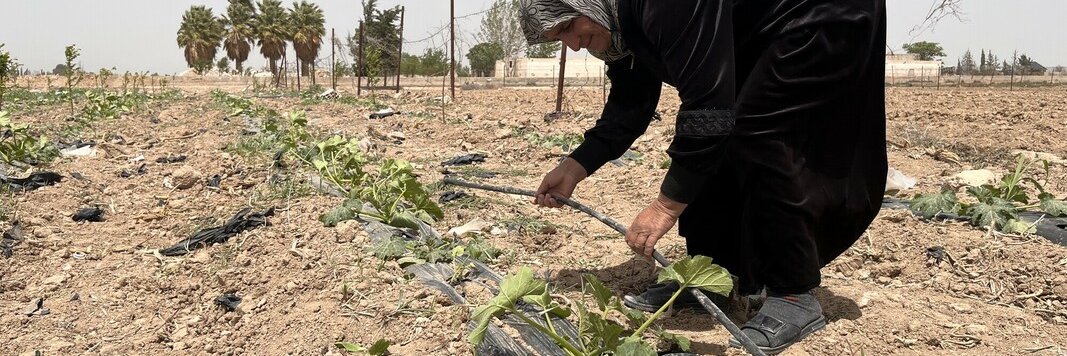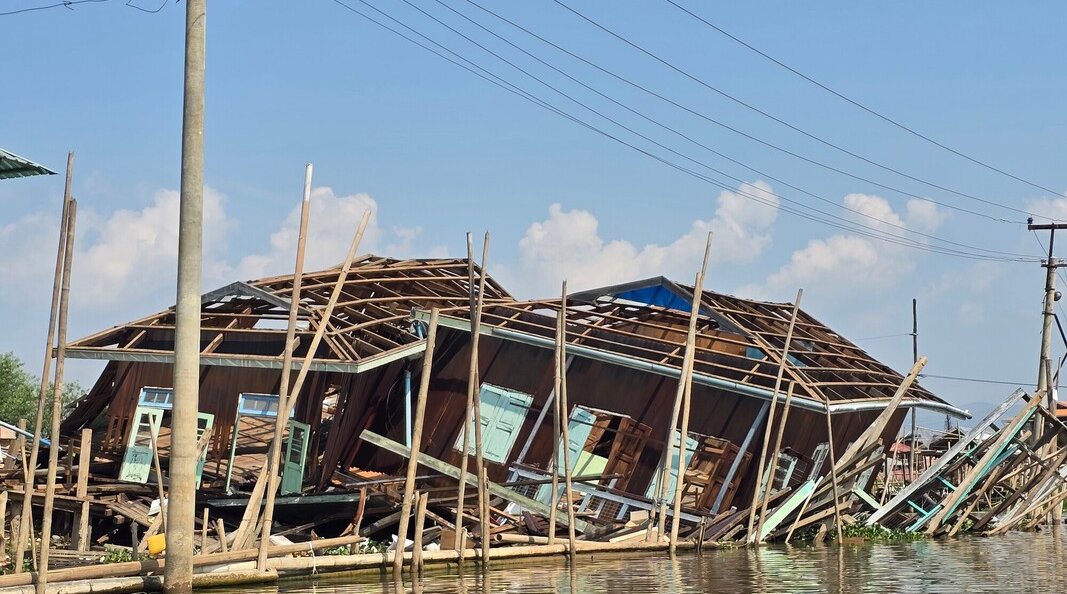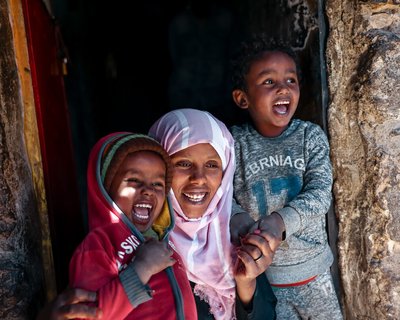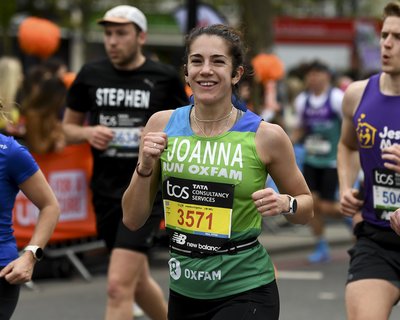- What is inequality?
- What is poverty?

Layla, a farmer from Rural Damascus and mother of two has seen a harsh drought's devastating impact on her village's agriculture and a crumbling economy. Photo credit: Dania Kareh/Oxfam
What is poverty?
What is the meaning of poverty? Read Oxfam's definition of poverty, learn which countries are affected by poverty, and find out what you can do.
What is the definition of poverty?
Photo credit: Mosab Al-Borno/Alef Multimedia/Oxfam

A shopper in Gaza chooses products in a shop where Oxfam is supporting people with hygiene vouchers.
How is poverty measured?
“People in extreme poverty have less than $1.90 to spend each day.”
Source: The World Bank

A damaged house on Inle Lake, in the south of Myanmar’s Shan State. In March 2025, the region was hit by powerful earthquake, forcing thousands of people from their homes and communities. Credit: YMO/Oxfam>
What are the causes of worldwide poverty?
It’s easy to assume that poverty is unavoidable. We may have all always been aware of it and assumed it’s a part of life – but this isn’t the case.
Poverty is caused by many connected and overlapping reasons, but there are some key causes. If we can fix these underlying issues, we can prevent people from being pushed into poverty in the first place.
This is the small lunchtime meal of Sagori Bauru, who lives in Moulvibazar in Bangladesh and gathers tea for her job. Credit: Fabeha Monir/Oxfam
We are facing a crisis for money and food. How can I pay electricity bills and loan instalments?”
Sagori Bauru, from Moulvibazar in Bangladesh, who gathers tea for her job.
This is Sagori's small lunchtime meal. Her husband died and she now supports her children alone, and her limited income of around £1.20 a day means they can’t eat a full meal in the day.
Oxfam worked with the EU in Bangladesh to give women more power and voice.
Which countries are most affected by poverty?
“"Within the last six years, this region is facing more and more natural and man-made disasters. Conflict with our neighbours, conflicts over water, climate change driving the lack of rain…"”
Mohamed Ahmed, Deputy Executive Director of APDA
Mohamed Ahmed, Deputy Executive Director of APDA, with whom Oxfam partners, stands in front of a drill used to dig holes for wells in June 2024. Credit: Petterik Wiggers/Oxfam
We are trying to help people conserve range lands, setting aside areas and not touching them for a few years, and rotate grazing areas. And people help each other, give each other goats.”
Mohamed Ahmed, Deputy Executive Director of APDA, with whom Oxfam partners, stands in front of a drill used to dig holes for wells in June 2024.
The community-based organisation, based in Afar in northern Ethiopia, works on health, education, peace and more.
Zamuda Swayao Constance at Burhinyi market in South Kivu, in the east of the DRC, supervising other women also participating in a farming project for communities to access more food and maintain peace. Credit: Narcisse K Chibangu/Oxfam
Poverty was our permanent state - we simply did not have enough resources or knowledge to lift ourselves out of the vicious cycle of deprivation. Apart from subsistence farming in our small plots, we had no other economic activities to generate income…It was considered a luxury for a woman's family to afford even one meal per day…We had to make the heartbreaking choice of prioritising tiny amounts of money for food over education.”
Zamuda Swayao Constance
How is Oxfam helping to tackle poverty worldwide?
Ready to be part of tackling poverty?

Donate to Oxfam
Your donation helps communities come together and take on some of the biggest challenges facing them today.

Fundraise with us
The money you raise will support our partners who know best how to tackle the challenges they face.

Volunteer
A few hours of your time can make a big impact.